Copyright © 2012, 2017 by Eleanor Hamer and Fernando Díez de Urdanivia All rights reserved. No part of this book may be reproduced in any manner without the express written consent of the publisher, except in the case of brief excerpts in critical reviews or articles. All inquiries should be addressed to Skyhorse Publishing, 307 West 36th Street, 11th Floor, New York, NY 10018. Skyhorse Publishing books may be purchased in bulk at special discounts for sales promotion, corporate gifts, fund-raising, or educational purposes. Special editions can also be created to specifications. For details, contact the Special Sales Department, Skyhorse Publishing, 307 West 36th Street, 11th Floor, New York, NY 10018 or .
Skyhorse® and Skyhorse Publishing® are registered trademarks of Skyhorse Publishing, Inc.®, a Delaware corporation. Visit our website at www.skyhorsepublishing.com. 10 9 8 7 6 5 4 3 2 1 Library of Congress Cataloging-in-Publication Data is available on file. Print ISBN: 978-1-5107-2536-2 Ebook ISBN: 978-1-5107-2537-9 Printed in the United States Contents About the Authors Born in Mexico to a British family, Eleanor Hamer ’s professional life began in Lima, Peru where she taught English as a second language for four years at the Instituto Peruano-Norteamericano and the Universidad de Lima. She then moved back to Mexico, where she was made director of the Insurgentes branch of the Berlitz School of Languages in Mexico City. A short time later, she became co-owner and Director of Pennington Cultural Center , then Director of the language laboratory at Ingenieros Civiles Asociados .
During the next few years, she wrote her first course in English as a second language, and in 1975, she established Hamersharp , a school for English as a second language designed for business executives. There she developed the definitive and highly effective course used successfully at the Hamersharp schools to this date. She also wrote Writing Business English for the most advanced students. Her aversion to administrative work led her to give up running Hamersharp , and for the last 15 years, she has been the official translator for Price Waterhouse (now PricewaterhouseCoopers) in Mexico City. Fernando Díez de Urdanivia is a graduate of the Carlos Septién García school of journalism in Mexico. The son of a prominent Mexican journalist, he has written for Excélsior , Novedades , El Heraldo de México , El Día , and El Universal .
He founded El Diario de la Tarde de Novedades and for many years wrote for a wide variety of Mexican magazines (including Hoy , Abside and Sembradores ). In 1998 he was awarded the National Journalism Prize for his interviews. He has taught Spanish composition and literature at the Escuela Carlos Septién García , the Universidad Motolinía , the Centro de Estudios of the University of California in Mexico, the Chicano Studies Center de Santa Barbara , California in México, and the Instituto Cultural Hispano Mexicano, and was director of the Centro de Estudios Periodísticos . He has also taught many literary and creative writing workshops. His published works include Mi historia secreta de la música , Cómo hablan los que escriben (interviews with famous writers), Te doy mi Palabra de Amor , Sabiduría en pocas líneas , En el umbral del milenio ( 50 interviews each with prominent Mexicans over the age of 70) and Dichas y dichos de la comida insólita de México (unknown food of Mexico), Carlos del Castillo , Heraldo de Bach en México (biography of the Mexican music teacher), Al final del camino and Burocraterapia (short stories), as well as Cuento Modernista Hispanoamericano (analysis of short stories during this period). About this Book This is not a textbook, but a very efficient reference book aimed at filling the void that confronts people who already have a fairly good knowledge of Spanish but can’t seem to progress beyond what they learned in the classroom.
One of the most interesting portions of the book is the chapter containing easy-to-understand details of words, phrases, expressions and sayings of real-life Spanish as it is actually spoken in Latin America. They are arranged in alphabetical order (according to the English alphabet) and translated into English, with real-life examples and explanations that help the reader grasp the true and complete meaning. That chapter has a counterpart, based on the most common expressions in English, with equivalents provided in Spanish. The pièce de résistance of this book is the chapter on the dreaded false cognate, a source of so many embarrassing situations. There is even a section where bad words are explained. Symbols are used to provide information in a variety of ways, including cautions such as  for “slang” and
for “slang” and  for “very vulgar”.
for “very vulgar”.
They save a lot of guessing and cross checking. All these elements give the student with the equivalent of what they could otherwise gain only from years of living with knowledgeable, educated Spanish-speaking people. Far from offering up the usual collection of tedious theories, the grammar chapter supplies useful clues, including an understanding of the subjunctive voice, and the use of problematic words such as para, por , pero and sino . This book is concerned with other significant aspects of the Spanish-speaking world as well. It explains the ins and outs of customs, dress, food and other cultural differences that can make life frustrating for the uninitiated. It includes a chapter to involve the student in Mexican cultural peculiarities and explains Mexican food and specific dishes with which the foreign visitor is usually unfamiliar but which are found on practically all menus.
It also contains a unique (though discrete) explanation of the Mexican “albur” (heretofore a mystery to non-native speakers of Spanish). This book is the result of 30 years of experience and hard work. Both co-authors are extremely well qualified. One is a native speaker of English and the other a native speaker of Spanish. Both are lifelong teachers of English and Spanish. This fact sets the book apart and provides an unequalled assurance of its accuracy in identifying the nuances, overtones and subtle meanings of real-life Spanish.
Symbols
| Person |  |
| Thing |  |
| Person or Thing |   |
| Literally |  |
| Used By Teenagers |  |
| Slang |  |
| Used Mainly in Mexico |  |
| Mildly Vulgar |  |
| Quite Vulgar |  |

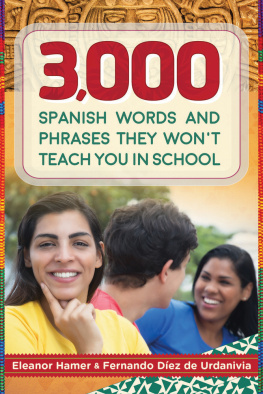
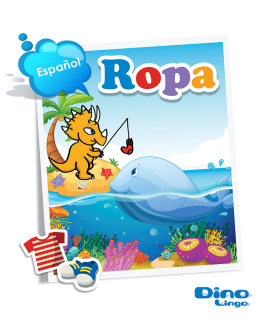

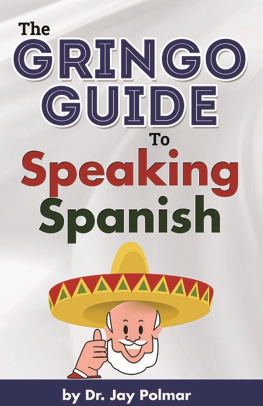
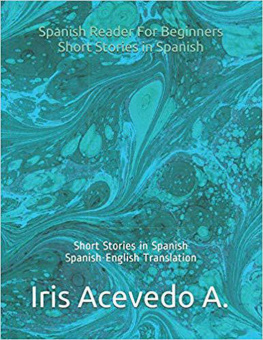
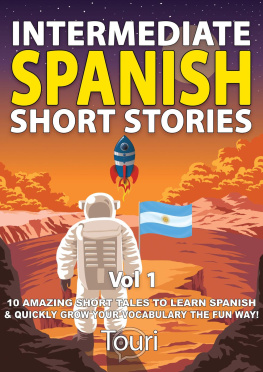

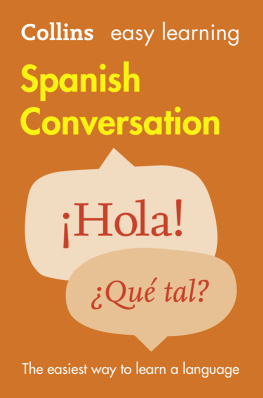
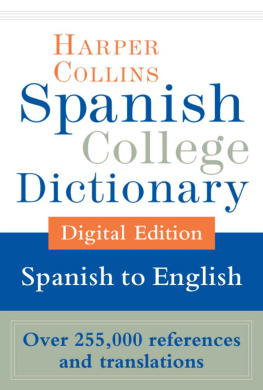
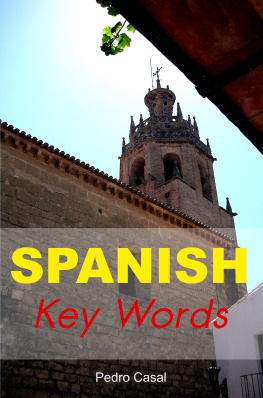


 for “slang” and
for “slang” and  for “very vulgar”.
for “very vulgar”.






